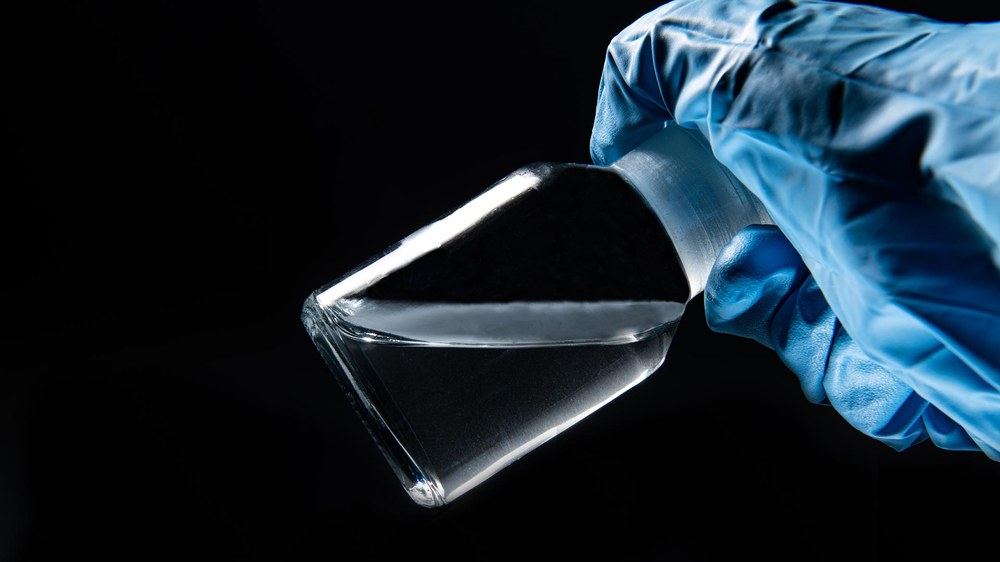Developing new process technologies for sustainable aviation fuels
M2SAF
The aim of this project is to develop a new type of process technology that enables the selective production of a fully drop-in-capable SAF based on methanol. In M2SAF, the institute is evaluating the eligibility of the fuels produced using advanced machine learning models and the production process using techno-economic and ecological analyses.
Five companies and research institutes have joined forces to form a consortium for this purpose. The advantage of such a fuel would be that it could be used directly and no installations on the aircraft or infrastructure would be necessary. The aim is to develop a production process that causes only minimal additional CO2 emissions and can be largely integrated into existing production facilities. The starting point of the process is sustainably produced methanol from CO2 and green hydrogen - a substance that is produced as a platform molecule from renewable electricity and other renewable resources and enables a decentralised/centralised concept through existing global logistics.
In addition to catalyst development, process development, plant integration and the design of a demo plant, the project also includes techno-economic and ecological analysis as well as accompanying support for the certification and analysis of the new aviation fuels. Two fuel variants are being investigated: one is a 100% drop-in, i.e. a fuel that can be immediately refuelled by all aircraft, and the other is a non-drop-in, which is not suitable for all aircraft but burns even more cleanly. In such a fuel, the proportion of components that produce soot during combustion is lower. This reduces soot emissions by around two thirds and the non-CO2 effects can be reduced significantly more in comparison to the drop-in variant.
Our researchers are using a targeted fuel design to optimise the composition of the synthetic kerosene. "Although this is only suitable for modern aircraft, it is nevertheless an essential step towards the climate-optimised fuels of the future," emphasises Prof. Andreas Huber, head of our institute. The M2SAF project also aims to minimise CO2 emissions during production. The next step is to build a pilot plant.
The M2SAF project is being funded by the Federal Ministry of Digital and Transport with a total of 3.1 million euros as part of the overall concept for renewable fuels. The funding guideline for the development of renewable fuels is coordinated by NOW GmbH and implemented by the project management organisations VDI/VDE Innovation + Technik GmbH and Fachagentur Nachwachsende Rohstoffe e. V. (Agency for Renewable Resources).
M2SAF | |
|---|
Duration of the project | August 2022 to January 2025 |
Participants | - ASG Analytik-Service AG
- BASF SE
- DLR - Deutsches Zentrum für Luft- und Raumfahrt, Institut für Technische Thermodynamik
- DLR - Deutsches Zentrum für Luft- und Raumfahrt, Institut für Verbrennungstechnik
- OMV
- thyssenkrupp Industrial Solutions AG - Uhde
|
Field of application | Development of a methanol-to-jet route and a 100% drop-in-capable SAF |
Project volume | 4.8 million euros |
Funding | 3.1 million Euros in funding from the Federal Ministry for Digital and Transport Affairs (BMDV) |
Project management | OMV |


